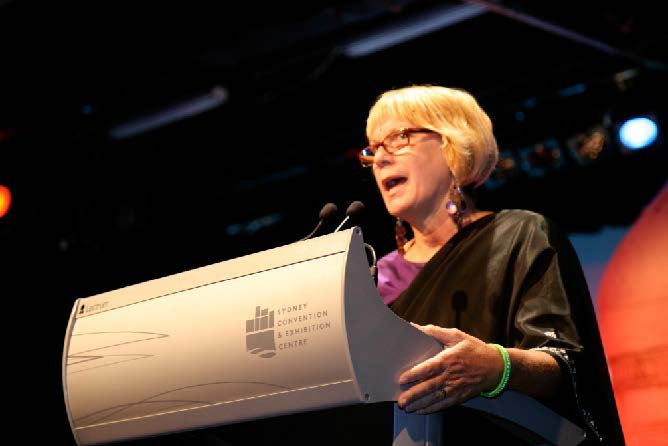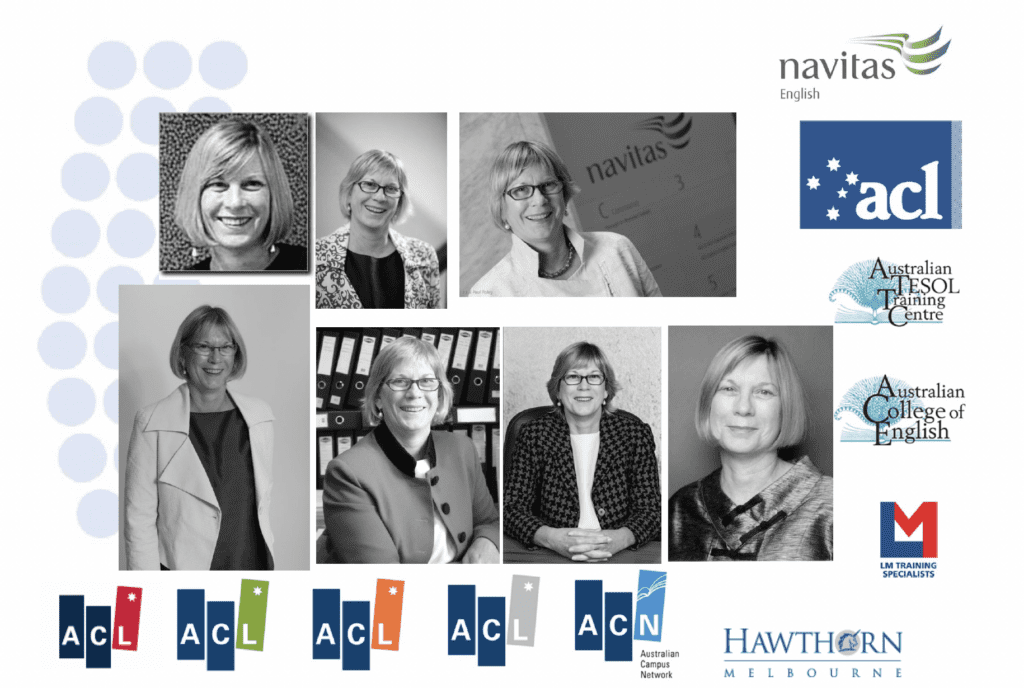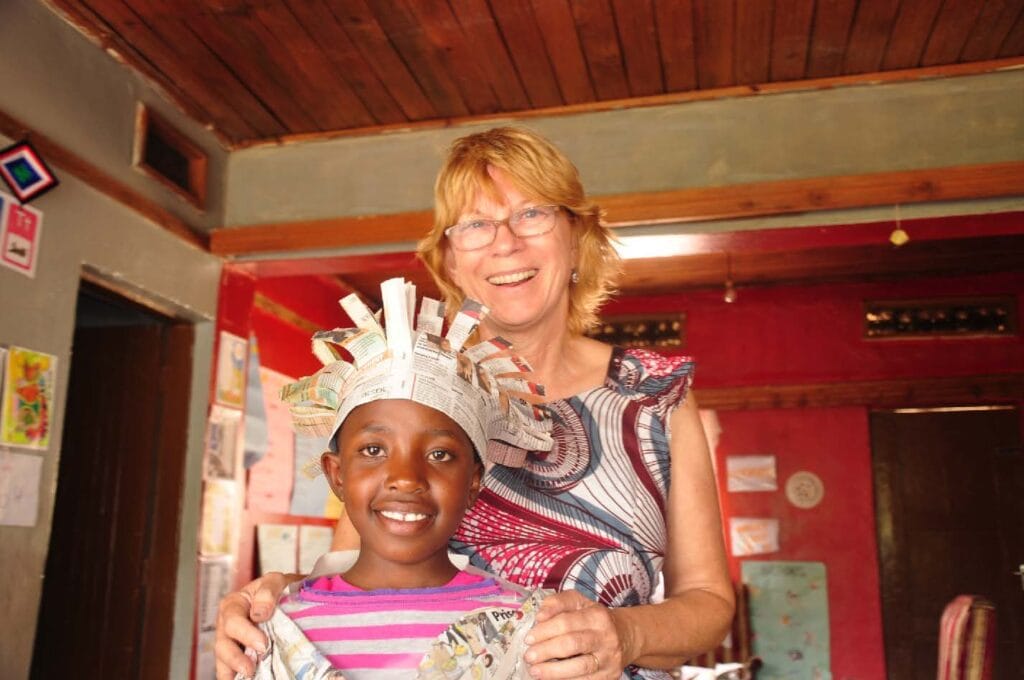Collaboration and quality the key to past and present Program success

While a lot has changed in the past 25 years, much of how the Adult Migrant English Program (AMEP) is delivered at Navitas Skilled Futures today can be traced back to its early days. Collaboration was the key to winning the initial contract in 1998, and it remains the key to the program’s success at NSF today.
Helen Zimmerman was at the helm in 1998 when Navitas – then acl – won its first tender for the AMEP.
Helen remembers it as an exciting but challenging time, proving to other providers, communities, teachers and unions that private providers could not just continue to deliver the well-established government program, but could also contribute to its ongoing improvement.
As CEO, Helen said her focus was on collaboration and quality, partnering with other relevant organisations, and hiring excellent staff – trainers who wanted to make a real difference, and who had the ability to turn theoretical, prescriptive “ABC” learning into engaging, practical lessons to make the program meaningful, useful and relevant, so as to not only improve English language skills, but to assist with people’s integration, independence and overall Australian settlement.
“One of my tenets has always been that you work in partnership,” Helen said. “You find people to collaborate with, and you can do more than if you could just do it yourself.”
Helen said at the start of the tender process in 1997, all interested parties were invited to Canberra for a briefing to understand what was required: things like full-time and part-time courses, community courses, welfare support and childcare on site.
“After the briefing, I sat in a coffee shop, and I just mind mapped it out, like, ‘Well, if we have to do all these things, how do we do it?’” Helen recalls.
“So I put together a consortium, which was: the University of Western Sydney, because we had the ELICOS centre for them there and they would do delivery around Liverpool and Westmead; University of Wollongong, because the Illawarra/Southern Region was quite a big area of migrants as well; St George Illawarra community college; and Macquarie Community College; Mission Australia for the Home Tutor Scheme and some support work; and KU Children’s Services for our childcare.”
ACL tendered for all five regions: Southwest Sydney, Western Sydney, Southern Sydney Illawarra. Inner City and Northern Beaches. “And we won three – the three biggest regions!” Helen said.
“We won 60% of New South Wales! I couldn’t believe it actually!
“But I was also not surprised because it was a very tough, good process. And they were scrupulous. It took us six months to negotiate the contract. It was pretty rock solid and we had the strong partnerships. It was an exciting time even if it was a very stressful time.”
A passionate educator and respected manager, Helen devoted her working life to education. She started teaching English to migrants in the 1970s and held leadership roles in Australian public and private education for over 30 years, Helen’s roles with Navitas included Executive General Manager with Navitas English, Group General Manager Government & Stakeholder Relations, and serving as Navitas’ Chief Corporate Affairs Officer before stepping out of the company in early 2018 into the role as Advisor to Navitas.

Helen said she was fortunate to have entered the industry with other trainers who shared her passion and were in a position to enable change.
One of Helen’s key philosophies was looking at the needs of students and providing them with English in context, so that the learning was relevant and useful, rather than learning “ABC” and “The cat sat on the mat”.
“I just said, every client gets interviewed … and we will find out what they need.
“You still had to have 20 in a class, but you could break it down – it was English for work, or for getting a job, or English for living in the community and English for study. And we changed the way it was done. It was revolutionary.”
In 2000 Helen was awarded the prestigious Private Sector Award for the Telstra NSW Businesswoman of the Year. But she said despite the successes there was still some background noise about education for profit, so she made an all-staff presentation in 2003 to “address the elephant in the room”.
“I knew that there was a bit of grumbling going on about education for profit, because a lot of our teachers had come from the public sector. So I decided, we tackle it head on, because you can’t have people not wanting to work for you over core values. So I made a presentation all about education and business – good business is just like good education: it’s fair, it’s results oriented, it’s people oriented, it’s involving and inclusive; and it’s built on relationship and trust.”
Helen said she talked openly about why they made a profit and what they did with it, how, as well as supporting shareholders, it went into growing facilities, improving, giving clients more.
“So I ended up with, ‘We are a really quality English language provider, we’re a quality business, it’s not either/or; it’s both. And then it’s got nothing to do with whether you’re for profit or not. It’s about what you do and how you do it’.”
And history has proved that how they did it worked, and continues to work today.


